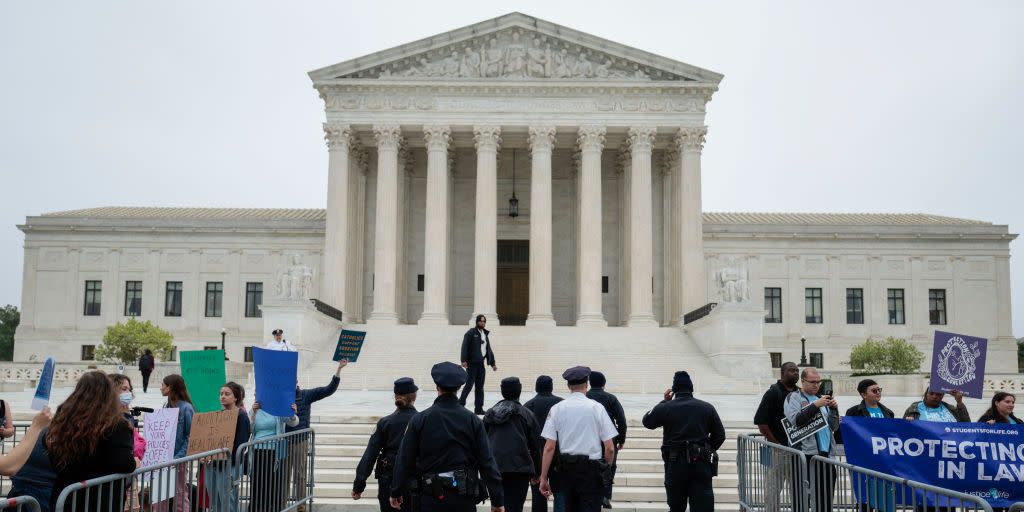What Happens Now That Roe v. Wade Is Overturned?

Today, the Supreme Court overturned Roe v. Wade, the constitutional protection of our right to abortion, in a 6-3 ruling on Dobbs v. Jackson Women’s Health Organization. While striking down such a landmark decision is a highly unusual move for the Supreme Court, the ruling seemed all but assured after a leaked draft opinion was published last month.
Roe had been under attack by the religious right almost since the moment the decision was issued in 1973.
But let’s answer your most burning question: What happens if Roe v. Wade is overturned?
Ahead of SCOTUS striking down Roe, a Guttmacher analysis found that 26 states would likely substantially restrict abortion access. (Those states are Alabama, Arizona, Arkansas, Florida, Georgia, Idaho, Indiana, Iowa, Kentucky, Louisiana, Michigan, Mississippi, Missouri, Montana, Nebraska, North Dakota, Ohio, Oklahoma, South Carolina, South Dakota, Tennessee, Texas, Utah, West Virginia, Wisconsin, and Wyoming.) Thirteen states have so-called “trigger laws” in place that would almost immediately ban abortion if Roe is overturned. Nine states have pre-Roe bans that could be legally enforced if the ruling is struck down, and four states—Alabama, Louisiana, Tennessee, and West Virginia—have passed their own constitutional amendments that prohibit any legal protections for abortion.
On Friday, Missouri wasted no time putting its trigger law on the books, with the attorney general touting that it was the first state in the nation to do so after the decision came down.
Just 16 states and the District of Columbia have passed laws protecting the right to abortion. You can read a state-by-state breakdown of what the overturning of Roe v. Wade could mean for your state here.
Striking down federal abortion protections will likely have an immediate chilling effect on access to abortion services. For a glimpse of a post-Roe America, the New York Times looked last month to Texas, which signed a bill into law in September to outlaw most abortions. As of this year, people seeking care must undergo state-directed counseling that discourages abortion ahead of a waiting period, which means two trips to the provider (and two rounds of traveling, taking time off work, and securing child care).
Also among the long list of restrictions Texas residents now face under the law, per Guttmacher: The patient must undergo an ultrasound and have the image explained to them, private insurance only covers abortion “in cases of life endangerment or if the woman’s health is severely compromised,” and abortions can only be performed after six weeks—before most people even know they’re pregnant—“only in cases of life endangerment or severely compromised health.” There’s also been a major uptick in Texans driving long distances, some as long as nine hours, per The 19th, to seek abortion care in neighboring Louisiana.
According to the New York Times, the average person seeking an abortion is already a mother, in their late 20s with some college education, and has a low income.
You Might Also Like

